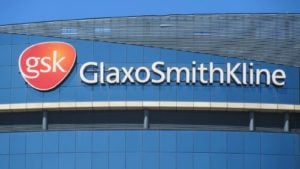3 Sorry Pharma Stocks to Sell in August Before It’s Too Late
Pharmaceutical stocks can bring you from rags to riches — and back to rags again. The truth is the innovative sector can function similarly to a lottery. Not every company can deliver consistent growth and profits, but those who beat the trend will have their shares pop somewhere in the double digits in share appreciation. A few years ago, the advent of the Covid-19 pandemic saw stocks in various industries plummet. Still, pharmaceutical shares began to rise to astronomic levels due to increased healthcare spending by governments, industry consolidation activity and investors’ increased need to allocate to what is seen as a defensive sector.
However, in 2023, pharmaceutical shares have largely underperformed the broader market. The SPDR S&P Biotech ETF (NYSEARCA:XBI), which includes a broad base of value and growth healthcare, biotech and pharma companies, is trading down 4% year-to-date. Businesses across the space face price pressures due to higher raw material prices and lower prices in the U.S. generic medicine market.
In this article, we will look at three such companies that have not only performed poorly in 2023 but also have little hope of revitalization in the near term. In other words, these are pharma stocks to sell or avoid.
Apellis Pharmaceuticals (APLS)

Apellis Pharmaceuticals (NASDAQ:APLS) is a U.S.-based company focusing on developing novel therapies targeting the complement system, a key component of the immune system. The company’s lead product is SYFOVRE, approved by the U.S. Federal Drug Administration (FDA) in February 2023 as the first and only treatment for geographic atrophy (GA) secondary to age-related macular degeneration (AMD). The company also markets EMPAVELI, a treatment for paroxysmal nocturnal hemoglobinuria (PNH), a rare blood disorder.
The company’s main attraction had been its innovative pipeline of drugs with the potential to treat various diseases with high unmet medical needs. The latter phrase is pharmaceutical jargon representing a situation in which patients do not have access to treatments needed to address highly specific patient needs — a rare disease, for example.
Apellis has over 20 clinical programs in development, including candidates for Alzheimer’s disease, multiple sclerosis, ulcerative colitis and COVID-19. However, the company’s stock performance has been dismal in 2023. The stock is down nearly 38% year-to-date (YTD), underperforming both the S&P 500 and the Nasdaq by a country mile.
The main reason for the stock’s poor performance is the uncertainty surrounding the commercial viability of SYFOVRE. In July, the American Society of Retina Specialists’ Research and Safety in Therapeutics Committee reported SYFORVRE was linked to several instances of blindness in patients who had taken the eye injection. Although Apellis has assured the instances were not due to the drug manufacturing process, investors continue to be weary — and they should be. Novel drugs can have difficulty getting over negative press coverage, and the company’s steep annual net losses should harden investors’ conviction to dump their shares and look elsewhere for yield.
GSK (GSK)

In contrast to our first contestant, GSK (NYSE:GSK) is an established U.K.-based healthcare giant that produces a wide range of prescription drugs, vaccines and consumer health products. The company is known for its blockbuster products such as Advair, Augmentin, Shingrix and Sensodyne. Being somewhat of a legacy pharma brand, GSK generated enough cash flow to sustain a relatively high dividend yield of 4.04%. However, the company’s growth prospects are dimming as it faces several headwinds. In 2022, the company’s revenue growth fell by 3% compared to 2021, and in the first half of 2023, the company’s year-over-year revenue growth continued to fall short of 2022 figures.
These performance weaknesses reflect the loss of exclusivity and demand for some of its key drugs, such as Advair and Augmentin, which have faced generic competition. As alluded to prior, prices in the generic market have come down in 2023. With lower prices in this market, GSK faces another competitive hurdle. However, GSK’s shortfalls are not only related to price pressures. AstraZeneca (NASDAQ:AZN), which increased in name recognition during the Covid-19 pandemic, has become a viable competitor to GSK with a number of growth prospects. The calculus for investors is simple: AstraZeneca has a robust pipeline of newer drugs slated for the next few years, while GSK does not.
Furthermore, GSK has had to make questionable M&A decisions to fill its pipeline, and pressure from U.S. hedge fund and activist investor Elliot Management also intensifies the anxiety around GSK’s future. Without much clarity into the company’s future and the apparition of formidable competitors, investors would perhaps be better off avoiding GSK shares.
Bristol-Myers Squibb (BMY)

Bristol-Myers Squibb (NYSE:BMY) is a leading biopharmaceutical company specializing in oncology, immunology, cardiovascular and neuroscience therapies. The company’s portfolio includes some of the best-selling drugs in the world, such as Eliquis, Opdivo, Revlimid and Zeposia. BMY has been developing a lengthy pipeline of innovative drugs that could potentially treat various diseases with high unmet medical needs. The company has over 25 late-stage programs in development, including candidates for melanoma, Crohn’s Disease and non-obstructive hypertrophic cardiomyopathy.
However, the company’s stock performance has been disappointing in 2023. The stock is down almost 15% year-to-date. BMY’s second-quarter revenues came in much lower than expected, and the pharmaceutical company was forced to cut its full-year guidance for Revlimid, a blood cancer treatment, and Eliquis, a blood thinner. Revlimid and Eliquis accounted for more than 47% of the company’s total revenue in 2022, and both face strong generic competition. That will eventually force the company to innovate and generate a new cohort of drugs from which to generate significant revenue.
Of course, while BMY is a well-established industry giant and has enough capital to develop and market new drugs, approval and success of these drugs are currently up in the air, and investors are perhaps better off not playing the lottery.
On the date of publication, Tyrik Torres did not hold (either directly or indirectly) any positions in the securities mentioned in this article. The opinions expressed in this article are those of the writer, subject to the InvestorPlace.com Publishing Guidelines.

